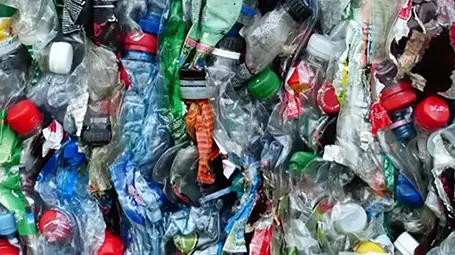Our Work
We bring together leaders in engineering, materials science, chemistry, policy, public health, ecology, business, and more.
Interdisciplinary Collaboration, Scalable Solutions

As one of the most versatile, affordable, and durable substances ever produced, plastic provides tremendous benefits and economic value. But the benefits of widely used plastic materials are diminished by the mounting environmental and human health impacts of plastic debris in our air, land, waterways, and oceans.
The Program on Plastics, Ecosystems, and Public Health (PEPH) at the Paula M. Trienens Institute for Sustainability and Energy delivers scalable solutions addressing challenges related to the global use and accumulation of plastics. This interdisciplinary initiative brings together experts from across Northwestern as well as collaborators from academic, civic, NGO, and industrial partner institutions.
The Big Ten Network recently highlighted the Program on Plastics, Ecosystems, and Public Health at Northwestern.
We bring together leaders in engineering, materials science, chemistry, policy, public health, ecology, business, and more.
PEPH Program network members are working together to deliver scalable solutions addressing the global use and accumulation of plastics.
Reach Out to Us
The Program is currently seeking to expand its network of academic, civic, NGO, and industrial partner institutions. For partnership inquires visit our contact page.
Contact PEPH